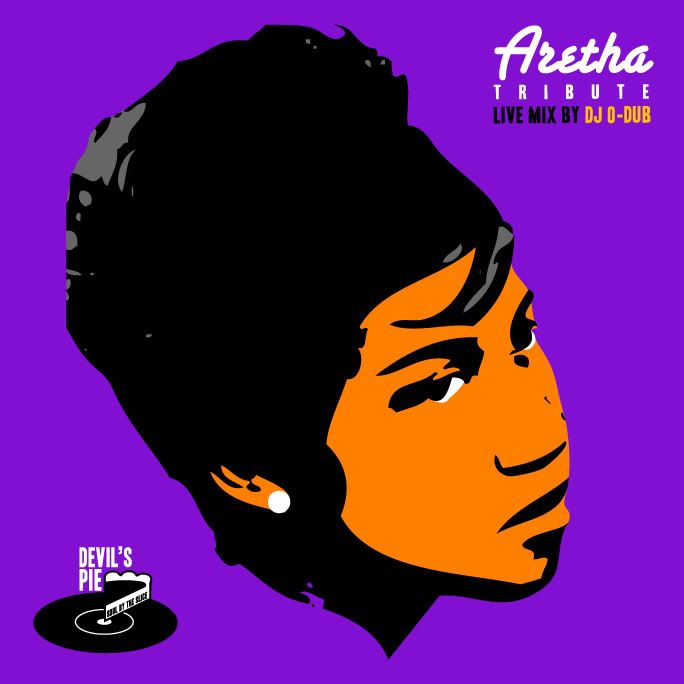 (Editor's Note: I got an IM from my friend Todd Inoue over at the SJ Metro the other week, asking me what "sad" hip-hop songs there were. As it turns out, Todd was working on a list for the Sad 13 Challenge and was trying to fill a gap he noticed insofar as no other writers were dealing with how hip-hop mourns in song. I can't remember if any of my suggestions actually made this list, but regardless, it's an interesting question and Todd's finished piece below might make for a good conversation starter. Thought I'd sound-file it up and see what comes from it. --O.W.)Dead HomiezWhat is the hip-hop equivalent of 'Cats in the Cradle'?
(Editor's Note: I got an IM from my friend Todd Inoue over at the SJ Metro the other week, asking me what "sad" hip-hop songs there were. As it turns out, Todd was working on a list for the Sad 13 Challenge and was trying to fill a gap he noticed insofar as no other writers were dealing with how hip-hop mourns in song. I can't remember if any of my suggestions actually made this list, but regardless, it's an interesting question and Todd's finished piece below might make for a good conversation starter. Thought I'd sound-file it up and see what comes from it. --O.W.)Dead HomiezWhat is the hip-hop equivalent of 'Cats in the Cradle'?
By Todd InoueIn hardcore rap, machismo is a guiding force, where showing feelings can be interpreted as a weakness and admitting sadness or regret can be a fatal flaw for an opponent to exploit. Maybe that's why many rappers strap on a screwface like body armor. "Nobody likes me and that's OK," rapped 50 Cent in an early mixtape appearance. After this quick admission of vulnerability, he proceeds to blast on haters, free from woe's restrictive grasp.
For a genre known for emotional outbursts, sadness should be a welcome topic of exploration among MCs. As the body count began piling up, new feelings began to emerge: regret, vulnerability, confusion and "is there a better place for me?".
Embracing the ideal of loss lead to some of genre's strongest moments. Yet perusing
Sad 13 Challenge lists, I saw that I was the only one to include hip-hoppers. I don't know whether that hints at a generational divide or just the demographic makeup (and resulting tastes) of Bohemian readers. Truth is, there are plenty of rap songs out there that pack the emotional wallop of Elliot Smith or Hank Williams. Here's a couple.
Common feat. Lauryn Hill: Retrospect For Life
From One Day It'll All Make Sense (Relativity, 1997)Common's meditation on abortion is personal and poignant without coming across didactic. The embryo removed, Common wonders how much of his identity was sucked away during the procedure. "I'm sorry for taking your first breath, first step and first cry but I wasn't prepared mentally or financially," he raps in one line. And with Lauryn Hill singing an interpolation of Stevie Wonder's "Never Dreamed You'd Leave in Summer" on the hook, this is a profoundly sad song that begs for a reconciliation that never comes. All that's left is the afterimage of regret. "Next time, I'll use self control instead of birth control because $315 ain't worth your soul."
Ghostface Killah w/Mary J. Blige: All That I Got Is You
From Ironman (Epic, 1996)Abandonment, poverty, roaches in the cereal box, urine-stained mattresses, siblings with birth defects--it's all there as Ghostface keens over his tough childhood. Similar in strata to "Retrospect," "All That I Got Is You" is bare emotion with an R&B diva on the hook to drive the point home. The point being: shit ain't sweet when you're poor. Mary J. Blige serves as a hopeful ray of sunshine swirled in strings of hope.
Lauryn Hill: Ex-Factor
From The Miseducation of Lauryn Hill (Ruffhouse, 1998)A mournful Hill dissects a relationship going nowhere. Her plaintive cries for an explanation passes through various stages of grief to arrive at the musty core of a love gone rotten.
Ice Cube: Dead Homiez
From Kill At Will EP (Priority, 1990)In a foreshadow of his success on the silver screen, Cube delivers a measured eulogy to fallen comrades without shedding a tear. Over a classic funk bed, Cube exposes the confusion of mourning. "They say 'Be strong' and you're trying/ But how strong can you be when you see your pop's crying?"
The Nonce: Who Falls Apart
From World Ultimate (American, 1995)12" (B-side of "Bus Stops") (Wild West, 1994)One of rap's most depressing songs came from the Los Angeles underground by one of its most slept-on denizens, the Nonce. "Who Falls Apart" is about the shadiness of the music business and why good rap groups don't stick around.
(Thanks to Hua for the sound-file)Eminem: Stan
From The Marshall Mathers LP (Aftermath/Interscope, 2000)Em's narrative told through the perspective of an obsessed fan accelerates in hysterics and showed his critics how complex and amazing a storyteller he can be. The rainstorm effects and Dido sample add to the dark, surreal nature.
Buck 65: Ice
From Man Overboard (Anticon, 2001)Buck 65 recounts the agonizing aftermath of his mother's fatal battle with breast cancer. "All my soul, my head, and aching tummy, why in the world was my mother taken from me."
Kanye West: Roses
From Late Registration (Roc-A-Fella, 2005)His grandmother in a coma, Kanye rushes to the hospital, reflecting upon the family's matriarch and discovering that health care is a class issue. When he asks a nurse for help, she asks if he can sign some t-shirts.



































